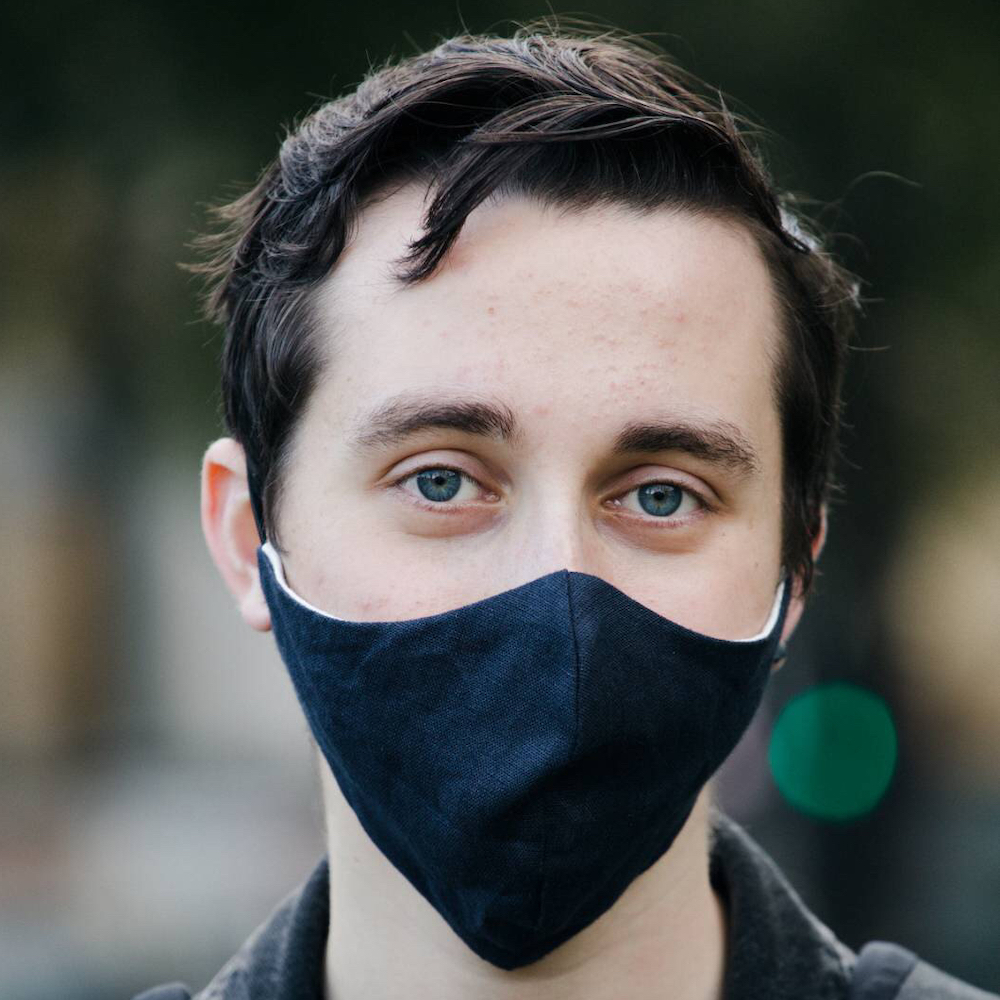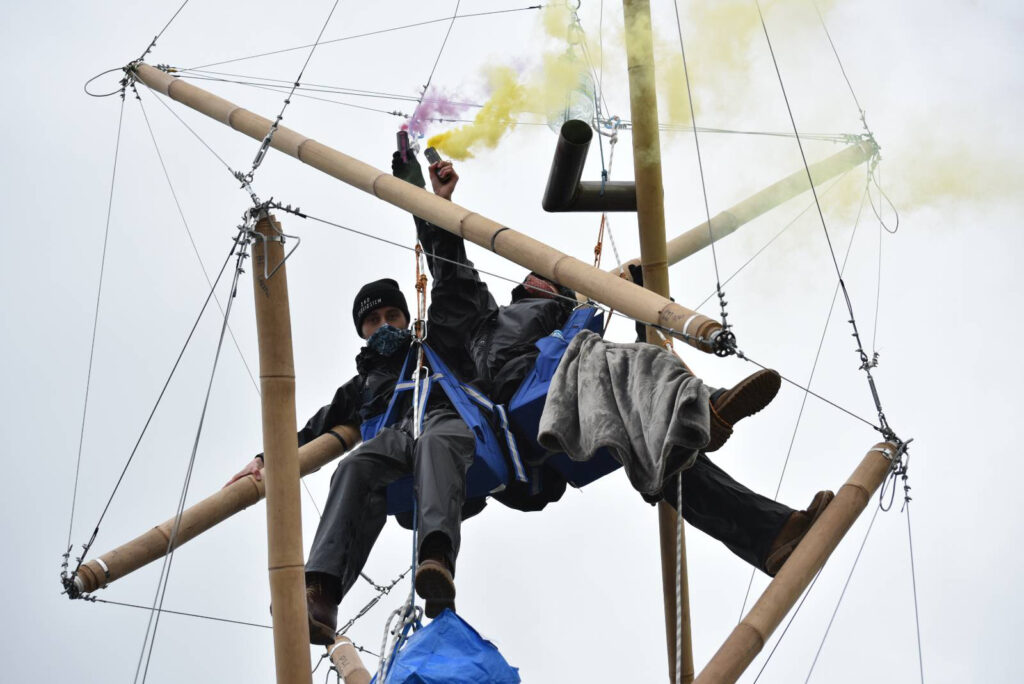
Dillon was arrested on 31st August 2021 when Animal Rebellion protestors occupied the Aylesbury distribution centre of Arla Foods, one of the world’s largest dairy companies. Animal Rebellion is demanding that Arla goes plant-based by 2025 and supports a just transition for its workers.
Dillon was taken to Milton Keynes police station where he was charged with aggravated trespass and willful obstruction of the highway. He pleaded not guilty at a pre-hearing and a full court hearing is now scheduled for Dillon and seven other protestors for 31st March.
Dillon spent 17 hours on one of the two bamboo structures that were placed on the roundabout in front of the main entrance to the factory, blocking the company’s daily 150 vehicle movements (the factory provides 10% of the UK’s milk supply).
“I was up there with one other person and we were sitting there on these uncomfortable chairs, with my legs dangling off it, for about 17 hours,” says Dillon.
Arrest was definitely the expected outcome but, he says, it was shocking how quickly the police were onto the protestors, with a cherry-picker brought in after about seven hours.
In fact, there had been a police raid 24 hours beforehand, where equipment was impounded and arrests were made. “I feel the police thought they’d found all our stuff and that they knew what we were going to do. And yet we still managed to pull off the action, which was really impressive.”
Of the 16 people arrested on the day of the action, Dillon was the second to last to be brought down, locked to the structure with a fellow protestor. They were given many chances to release themselves but refused.

“At this point it was just the two of us left. As soon as we were down, that was it, the trucks could go in and out. It was just us two standing between this factory being open so we were like, there’s not a chance we’re removing ourselves from here.”
In the end, they had to be cut out in situ, rather than on the ground, which was a challenge for the removal team.
“I remember when we were down, one of the three men in the removal team shook my hand and said, keep it up, it was rather emotional.”
Dillon was handcuffed and put in one of the holding cages. “I fell asleep almost instantly! It was kind of a relief but it was very satisfying that we’d cost this company a lot of money.”
He was taken to Milton Keynes police station because Aylesbury was already full up. He was checked in, given a new set of clothes and had to see a nurse. His legs were shaky and he’d decided not to drink while on the structure so was dehydrated and had very low blood sugar levels.
“I was given a blanket and pretty much slept until it was time to be released.”
He wasn’t interviewed but received the two charges. In fact, on talking to a solicitor, it turned out you have to be on private land to be charged with willful trespass and on public land to be charged with obstructing the highway. It was subsequently clarified that the protestors were on private land, so the highway charge was dropped.
He felt well prepared for arrest. “Everyone had been given know your rights training; we knew the procedure… I was very confident the whole time, I knew what I could ask for and I knew all my rights.”
Then, on release, there were people waiting. “It’s really nice, from being in a room by yourself for 14 hours just to see familiar faces.”
His family have been supportive, helped by the fact that his parents were animal rights activists in the 1990s. He called them from the top of the bamboo structure. “They were like, yes, well done!”
So why did Dillon go to such an extreme as to get arrested?
“Through growing up my parents were always very honest with me about the climate crisis and the direction our environment is heading. Even at school I was always talking about it… and in the last two years, I’ve realised that no one in power is doing anything about it.
“I have also tried talking to individuals, one by one, and getting them to go plant-based, and it can work sometimes but it’s nowhere near as quick enough as it needs to be. We need system change. I’ve no idea what the next few decades are going to look like if we don’t change but I am sure it’s going to be pretty terrifying.
“Signing petitions doesn’t work. No one listens to a piece of paper. I just know that through these actions and disruption, this is how people listen to us. I’d rather put myself in these vulnerable situations than just sit at home and let these companies destroy our world.”
